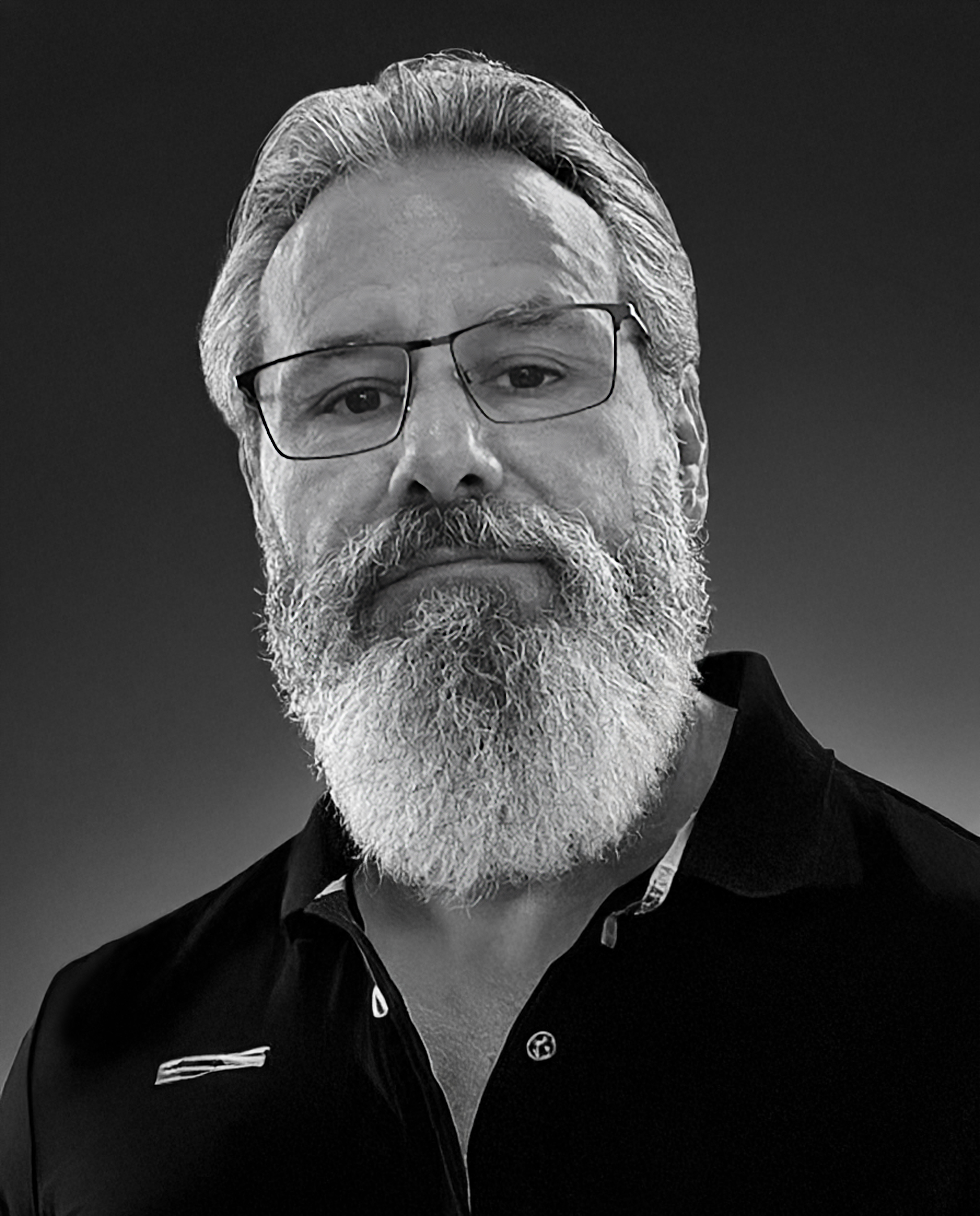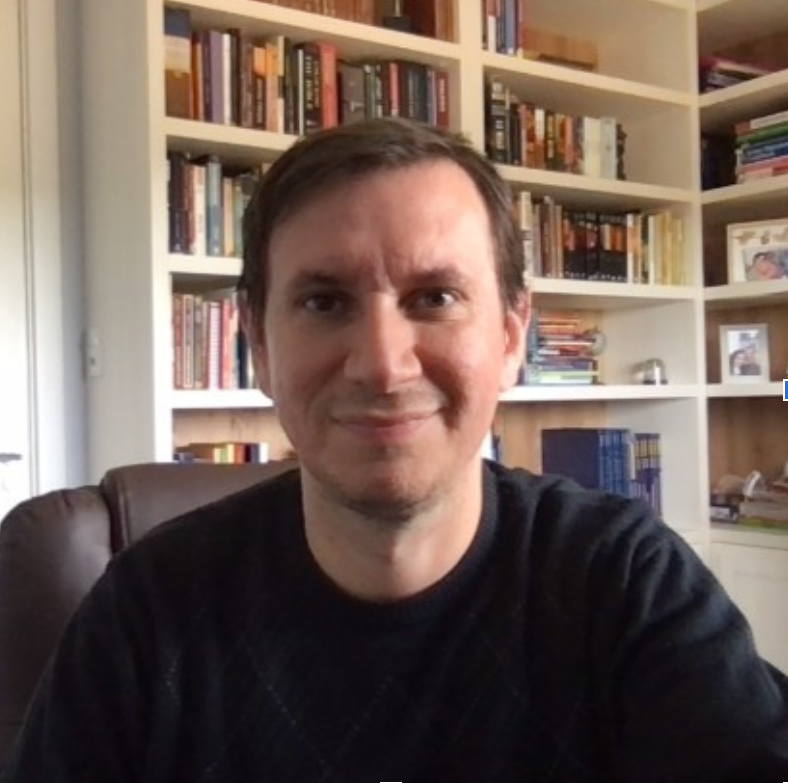Inspira Online
See what the world is saying about Inspira's groundbreaking AI solutions
BBC Covers Inspira's AI "Boss"
Global recognition for our revolutionary AI management system
The Future of Work is Changing
AI assistants and managers are transforming the workplace
Follow on LinkedIn
Join our community and stay updated on AI innovation
Papers by Inspira's Thought Leaders
Inspira's Leadership Team

Izzy Traub, CEO
LinkedInEducation: Certificate in Machine Learning - University of Texas (2021)
Izzy originally studied film at UCLA. He used artificial intelligence to innovate production requirements on The Creator, The Bear and many other shows on behalf of Hulu, Netflix and HBO, all feeding his passion for AI. He has hired and supervised more than a thousand people, gaining insights into human frailties that he believed only AI could solve. He augmented his education with a certificate in machine learning from the University of Texas, then co-founded Inspira in 2021.
He has filed four patents related to AI, including innovations in LipSyncing (translations) and DeepFake (de-aging).

Benny Traub, Solutions Architect & COO
LinkedInBenny inspires the UX of Inspira's multi-agent "Sidekick Engine" and "Water™", a human-to-agent interface and productivity engine. Benny studied behavioral science in the 1980s, with a focus on marketing, then rebooted his career in software development in 2010. He augmented his education in 2021 with a certificate in AI Strategy from MIT.
Benny has filed over a dozen patent applications related to the improvement of human productivity through AI.

Levi Stringer, Agentic Systems Team Lead
Levi holds a Bachelor of Applied Science in Applied Mathematics and Computer Engineering from Queen's University. He specializes in building large-scale AI systems, with expertise in multi-agent orchestration, MLOps, and applied machine learning. Levi has led teams that developed AI-powered scheduling platforms for healthcare and aviation, as well as enterprise-grade agent frameworks for finance, media, and government clients.

Anis Lazaar, Web Application Team Lead
Anis holds a Master's degree in Software Engineering from EPI Engineering School. Anis is a seasoned software engineer and Team Lead for Web and Desktop Applications at Inspira. He specialises in designing and delivering robust, user-centric apps across the full stack, with deep experience in modern web frameworks, desktop app architectures, and high-quality engineering practices.

Fernando Schubert, DevOps Team Lead
With a Master's degree in Computer Science, Fernando has over 20 years of IT experience, with more than a decade dedicated to cloud architecture, infrastructure, and DevOps. His expertise includes designing scalable, secure, and cost-efficient environments, supported by strong knowledge of modern frameworks and best practices. Fernando is skilled in containerization, orchestration, and infrastructure-as-code, with a proven track record in cloud migrations, automation, and enterprise optimization.
Science Team

Professor Paul Thurman, DBA
Contributing Advisor
Dr. Thurman teaches strategic management and data analysis at Columbia's Mailman School of Public Health. He earned his BS in mathematics from Stanford University, an MBA from Columbia, and a Doctor of Business Administration (DBA) degree from the Ecole des Ponts Business School in Paris, France. Dr. Thurman is an accomplished professional with extensive experience in advising and managing global firms in operations and technology strategies. He contributes to Inspira's business strategy, as well as our research projects.

Phil Peper, PhD
Research Associate
Phil earned his Masters from University of Minnesota, and a PhD in Experimental Psychology from the University of Texas. In addition to currently conducting Postdoctoral Research at the University of Arizona, Phil contributes to Inspira's research architecture and performing studies into how behavioral science impacts our user experience.

Professor Jo Anne Oravec, PhD
Research Associate
Dr. Oravec is a full professor in the College of Business and Economics at the University of Wisconsin at Whitewater. She received her MBA, MS, MA, and PhD degrees at the University of Wisconsin at Madison. Her books include Good Robot, Bad Robot: Dark and Creepy Sides of Robotics, Autonomous Vehicles, and AI. She has held visiting fellow positions at both Cambridge and Oxford. Dr. Oravec contributes to Inspira's research initiatives into behavior modification and technology adoption.
Our Mission
Our mission: Harnessing AI and Agentic technology to eliminate global poverty
When AI automation and Agents are integrated successfully into the supply chain, the cost of goods and services goes down.
As AI technology advances, we predict many goods and services will eventually be produced at a cost of near-zero. This will result in an Age of Abundance; a world where poverty no longer needs to exist.
That is our mission.
Here is what we see coming…
In the coming years, lower production costs will result in wider margins for the companies that first adopt AI Automation. If management decides to pass the cost savings on to their customers, then a market leadership position might be obtained. However; if prices are not lowered, these advantages in margins will only last until competitors catch up in their own automations. Eventually, as AI Automation becomes ubiquitous, some companies will lower their prices, forcing others to drop theirs. Prices will then spiral down, following the cost of production.
Barring a cataclysmic event, a future Age of Abundance is a mathematical certainty.
To accomplish our mission, Inspira will provide a transformation platform that facilitates the seamless integration of agents and automated workflows into production pipelines. Through Inspira's Water™ platform, 'Sidekicks' already participate in the production process, behaving exactly as other humans. Humans now interact with digital humans without friction, and without having to 'learn' how. It is natural.
Inspira is committed to the ethical development and deployment of agentic technology to enhance efficiency, productivity, and cost-cutting across industries. By strategically integrating Sidekick assistants into the workforce, we aim to optimize operations, reduce costs, and drive economic growth, ultimately contributing to the dramatic reduction in the cost of goods and services and the alleviation of global poverty and its associated grief.
We see future knowledge work falling into three categories, all of which an organization must begin the AI-enablement of immediately, before the technology gets even more mature.
1. Human Centric Work
This is work that does not include any automation. It is singularly human. Even though this category of work may eventually shrink, we now have new optimization opportunities through AI, to recover lost human time. It is estimated by some that the average person is truly productive only 2-3 hours out of an 8-hour day. If this is true, the opportunity at hand is to recover between 5-6 hours per day through clever strategies not yet seen before. Inspira's Water™ platform is on track to deliver these benefits.
2. Human-assisted Work
This is work initiated by humans, and then performed by automated systems, such as Inspira's Sidekicks. In this category of work, humans plan and provide input, giving AI the 'leadership' it needs to carry out its tasks. Delegating work to a Sidekick feels natural, and exactly like delegating work to other humans, so no special training is needed to make the transition.
This category of work will grow rapidly over the next decade, but will eventually shrink, as the next category of fully autonomous work takes over more and more of the workload. Our calculations predict that 20% of the work currently performed by humans on computers will be performed by this category before 2045.
3. AI-Autonomous Work
If the server doesn't go down, this work will be planned, managed and performed entirely by AI systems. Today the items on this list is small, and mostly invisible to us humans. Think of the clock on your phone changing to daylight savings time automatically. Remember the days when you had to do this manually? Today we barely notice it.
This list of autonomous tasks will grow rapidly over the next two decades, taking more and more of the load from the above two categories. Our calculations predict that 70% of the work currently performed by humans on computers will be performed by this category before 2045.
AI & The Economic Future
During their individual journeys, the founders confirmed what most executives already know…that all humans, even those who are highly trained and very expensive, have limitations that lead to inconsistent behavior, or even consistent low performance. And the more we scale, the wider the gap becomes. With hundreds of thousands of man-hours under their supervision, the founders saw the many opportunities for improvement which are now the subject of Inspira's AI Machine Suite.
We stand at a critical juncture where the augmentation of human capabilities is not just an advantage but a necessity to avert obsolescence and seize the future that's still within our grasp.
AI systems must be capable of identifying problems before they become noticeable to a human. Ideally, those AI systems must attempt to solve those problems without human intervention. This approach frees the executive team to focus their precious and limited time on issues that can change the future of the organization, rather than trivial, repetitive human-performance problems.
The clock is ticking.
Projections by McKinsey & Co indicate that 30% of ALL work could be replaced as soon as 2030 and 90% of knowledge work as early as 2043. Our calculations agree and remain aggressive, predicting that only 10% of knowledge work will remain by the year 2045.
We urge every organization to commit to the transformation process of AI-enablement immediately before it is too late to catch up to those who are already out in front.
Competitive advantage can quickly be lost. Once lost, it is difficult or even impossible to gain back. A company (or nation) that does not rapidly augment every worker with AI, may suffer irreversible economic consequences.
Our conviction is this: the rapid AI augmentation of every worker is the linchpin of economic resilience and leadership in the global arena.
At Inspira AI Corp, we are not merely building AI software; we are cultivating a synergy between human intuition and AI efficiency. The journey towards AI-enablement is complex and multifaceted, but it is one that we must navigate, starting today. Join us as we forge a path to a future where every metric is optimized, and every organization can thrive in the AI-augmented landscape.
Together, let's redefine what is possible.
Ready to Transform Your Organization?
Book a free strategy session to learn how Inspira can help you harness AI for competitive advantage.
Schedule Your Free Session